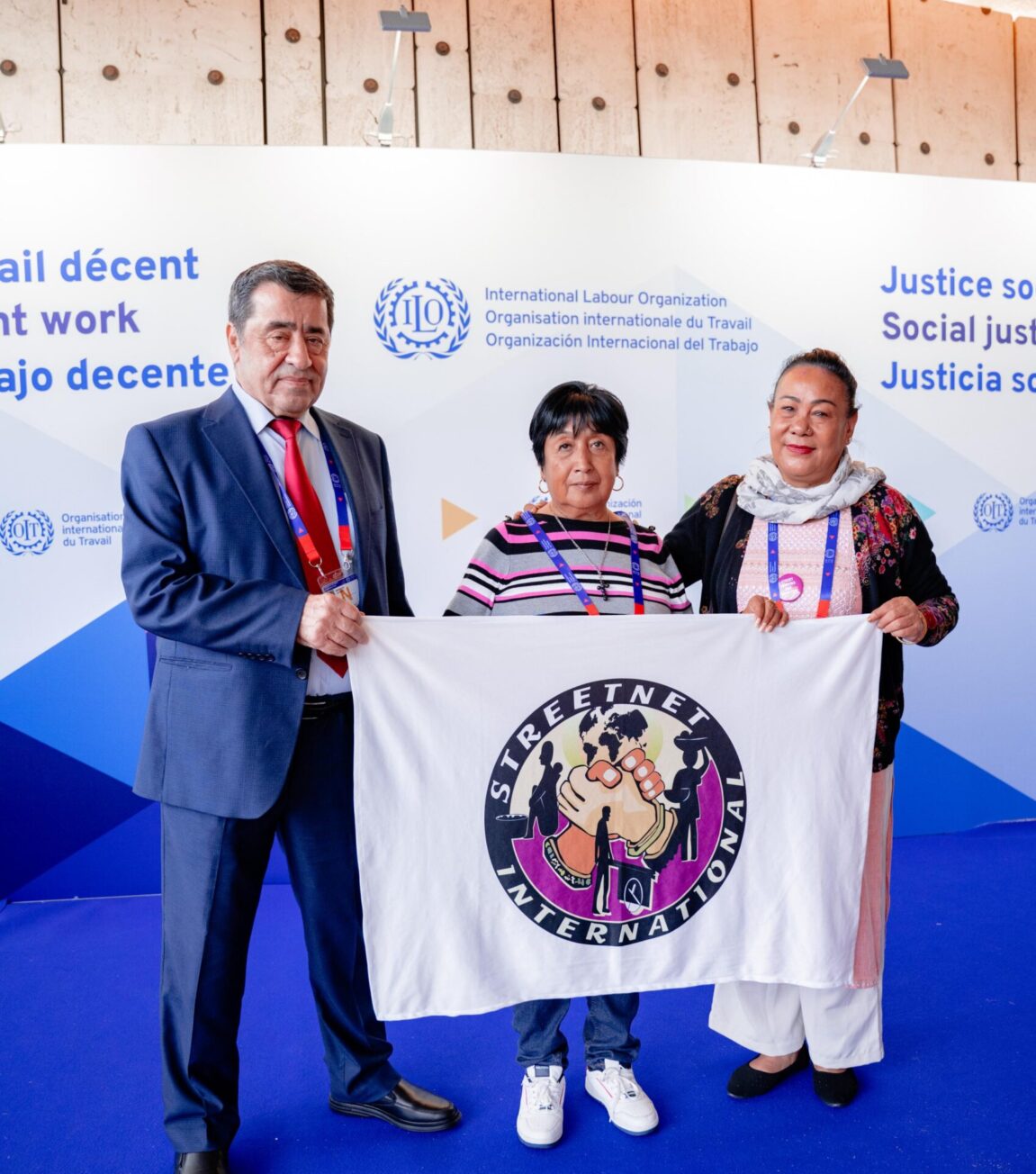Aaron A Boima, National Secretary-General of SLeTU, shares some history and thoughts on ILO Recommendation 204
12 July, 2016
 Aaron A Boima used to work as an informal trader. He became a trade unionist more than 14 years ago. Currently he serves as the National Secretary-General of the Sierra Leone Traders Union (SLeTU), a StreetNet affiliate. In an interview with StreetNet International, Comrade Boima shared his rich history of organising within the informal economy.
Aaron A Boima used to work as an informal trader. He became a trade unionist more than 14 years ago. Currently he serves as the National Secretary-General of the Sierra Leone Traders Union (SLeTU), a StreetNet affiliate. In an interview with StreetNet International, Comrade Boima shared his rich history of organising within the informal economy.
He also gave his views on ILO Recommendation 204 for the transition of the informal economy to the formal economy, and what it really means for the informal traders in his country.
In 2006, Comrade Boima and his colleagues started organising informal economy workers into trade unions. Today, these unions are able to negotiate with government at local and national levels. A major success is a signed Memorandum of Understanding (MoU) with local government. Comrade Boima is also a member of a National Tripartite Body called the Joint National Negotiating Body (JNNB).
SLeTU, which is the national and biggest informal economy workers’ union of traders, street vendors and hawkers in Sierra Leone, was the first informal traders’ union to be registered as a trade union in Sierra Leone. It has a membership of about 667061 informal economy workers nationwide; 6000 are affiliated to the Sierra Leone Labor Congress (SLLC) and more than 22,000 are affiliated to StreetNet International.
In each administrative district town of Sierra Leone, there is an Informal Economy Platform for trade unions that are affiliated to the trade unions centre – the Sierra Leone Labor Congress (SLLC), of which Comrade Boima is the coordinator. There are ten trade unions which organised Informal economy workers in Sierra Leone.
SLeTU and other informal worker trade unions have been working hard, together with SLLC, to get social security for all informal workers in their country. Comrade Boima is emphatic that ILO Recommendation 204 came just in time for advancing the social security issue. He said, “There is social security for formal workers in my country. I believe that ILO Recommendation 204 will improve the life of informal workers as it has key elements which provide us, informal economy workers, with advantages, such as:
- a right to organize;
- safety and protection of work places;
- the setting up of a dual social security system for informal economy workers;
- Decent work aspects;
- cooperatives and access to finances."
He also said, "Together with the SLLC, we launched a campaign on social security in 2015. Today, we are still very keen to learn more about how other countries deal with this particular issue, how it is rolled out, especially in targeting the informal economy sector. We have obtained more information about social security protection and health insurance schemes by looking at these in countries such as Tanzania, Ghana, Kenya and India. We plan to go to India soon to visit StreetNet affiliate SEWA (Self-Employed Women’s Association). The Philippines is also a country of interest to us. "
 Comrade Boima pointed out that the informal economy unions’ social partner in Sierra Leone, the National Social Security Insurance Trust (NASSIT), provided financial support for their visits to most of the countries he mentioned. The purpose was to look at their social security schemes and best social security practices for informal economy workers. "The social protections and the social health insurance schemes are our target as these two issues are very linked with each other," he said.
Comrade Boima pointed out that the informal economy unions’ social partner in Sierra Leone, the National Social Security Insurance Trust (NASSIT), provided financial support for their visits to most of the countries he mentioned. The purpose was to look at their social security schemes and best social security practices for informal economy workers. "The social protections and the social health insurance schemes are our target as these two issues are very linked with each other," he said.
As the coordinator of SLLC, Comrade Boima urged NASSIT to review the country’s Insurance Act of 2001. It does not provide for compulsory social security for all. He said, "The world today is seeking a universal declaration for social security and health insurance for all, as stated in ILO Recommendations 204 and 202."
Comrade Boima also said that in August 2015, NASSIT conducted a nationwide survey on informal economy workers. More recently, in June 2016, another survey on health insurance was conducted. NASSIT, in collaboration with the Labor Congress and SLeTU is planning to hold a conference in October 2016 to evaluate the surveys’ findings, he underlined.
Any progress made in relation to the implementation of ILO Recommendation 204 and adoption of social security for informal workers in Sierra Leone, will be followed up and posted on StreetNet media.
Interviewed by Oksana Abboud, StreetNet Media Officer



